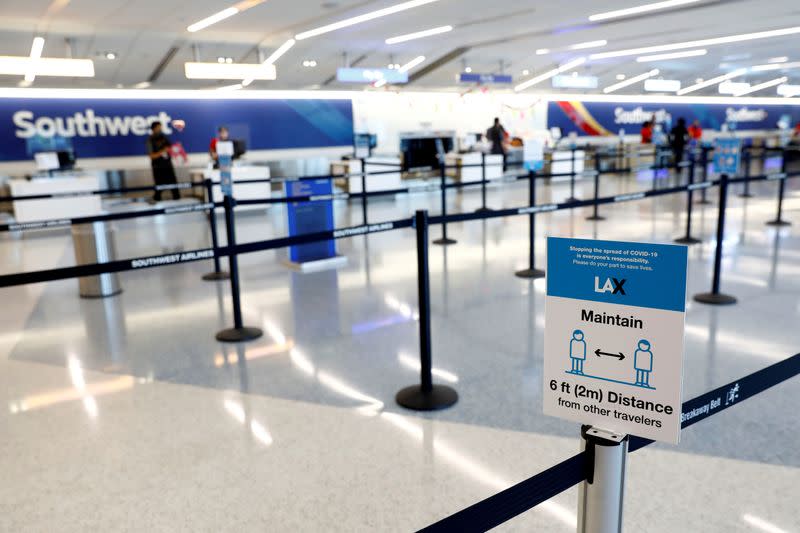Airplane COVID-19 risk 'very low' with masks, other actions, report finds

By David Shepardson
WASHINGTON (Reuters) - Transmission risks of COVID-19 during airline flights are very low and below other routine activities during the pandemic such as grocery shopping or going out to dinner, when using face coverings and taking other steps, researchers at the Harvard School of Public Health said Tuesday.
The report found transmission risks can be "reduced to very low levels through the combination of layered infection control measures."
The report, funded by Airlines for America - a trade group representing American Airlines, United Airlines, Delta Air Lines and others - and a consortium of aircraft and equipment manufacturers and airport operators, comes as U.S. airlines lose billions of dollars a month as passenger demand remains down 65% year on year because of the coronavirus.
U.S. carriers are operating just 50% the flights they did in 2019. Some carriers have recently announced new plans to end blocking of middle seats during the pandemic.
The Aviation Public Health Initiative team at Harvard recommended strategies to mitigate transmission risk on aircraft, during boarding and exiting.
The report found after airlines mandated masks, boosted cleaning procedures and revised boarding procedures, "and with millions of passenger hours flown, there has been little evidence to date of onboard disease transmission."
The report noted commercial passenger aircraft are equipped with ventilation systems that refresh cabin air on average every 2-3 minutes and removing more than 99% of particles of the size that cause SARS-CoV-2.
Researchers also found face masks significantly reduce risks of disease transmission during the COVID-19 crisis. Airlines have mandated masks, added new cleaning and implemented protocols to manage boarding and deplaning.
The U.S. Centers for Disease Control and Prevention this month issued a "strong recommendation" that all passengers and employees on airplanes and in airports should wear masks to prevent the spread of COVID-19.
The Harvard report said risks remain that contagious pre- or asymptomatic people could be unaware and opt to fly.
The study echoes a U.S. Defense Department study released earlier this month that found the risk of exposure to the coronavirus on flights is very low.
When a seated passenger is wearing a mask, an average 0.003% of air particles within the breathing zone around a person’s head are infectious, even when every seat is occupied, it found.
(Reporting by David Shepardson; Editing by David Holmes)

